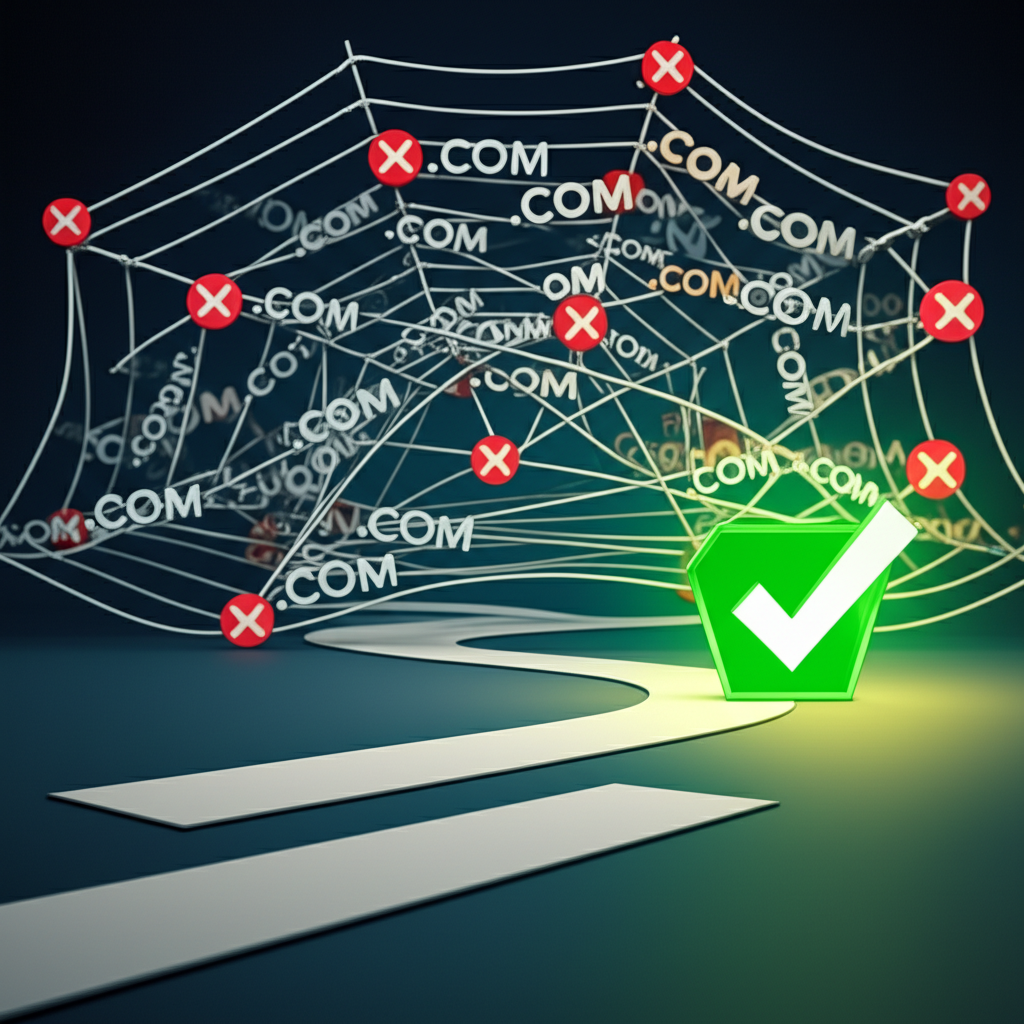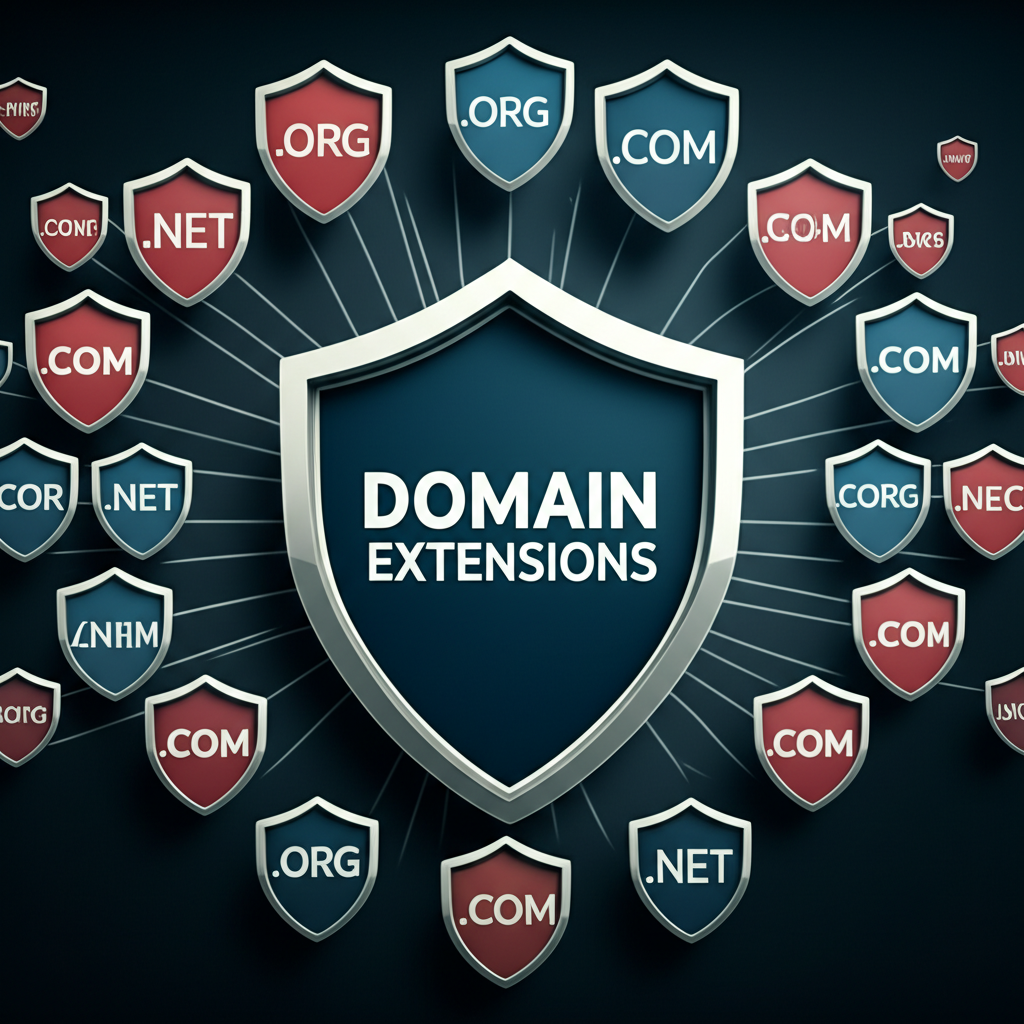- Common Domain Buying Mistakes to Steer Clear Of
- 1. Ignoring Keyword Research in Your Domain Buying Strategy
- 2. Choosing the Wrong Domain Extension
- 3. Overlooking Domain Name Length and Complexity
- 4. Neglecting Trademark Research Before Domain Buying
- 5. Not Checking for Similar or Competing Domains
- 6. Focusing on Exact Match Domains (EMDs) Too Heavily
- 7. Failing to Secure Domain Privacy Protection
- Making Informed Domain Buying Decisions
Domain Buying Mistakes: 7 to Avoid for Best Results
Domain buying can be an exciting venture, whether you’re starting a new business, building a personal brand, or expanding an existing online presence. However, a hasty approach to acquiring a domain name can lead to costly mistakes that hinder your online success. A well-chosen domain name is a cornerstone of your online identity, impacting branding, search engine optimization (SEO), and overall user experience. Avoiding these common domain buying mistakes will help ensure your investment pays off.
Common Domain Buying Mistakes to Steer Clear Of

A seemingly simple process, domain acquisition can be fraught with pitfalls if not approached strategically. Here are seven crucial domain buying mistakes to avoid:
1. Ignoring Keyword Research in Your Domain Buying Strategy
Keywords play a significant role in how potential customers find your website through search engines. Integrating relevant keywords into your domain name (where appropriate and natural) can give you a valuable SEO boost. Before purchasing a domain, conduct thorough keyword research to identify terms related to your industry, products, or services that have a high search volume and low competition. This research can inform your domain name choice and help you attract organic traffic.
2. Choosing the Wrong Domain Extension
While .com remains the most popular and recognized domain extension, others like .net, .org, and industry-specific extensions (e.g., .photography, .realestate) are also viable options. The best extension for you depends on your specific needs and target audience. For example, .org is typically associated with non-profit organizations, while .net often signifies network-related businesses. Choosing the wrong extension can confuse your audience and negatively impact your branding efforts.
3. Overlooking Domain Name Length and Complexity
A concise and memorable domain name is essential for easy sharing and recall. Avoid excessively long and complicated domain names that are difficult to type and pronounce. Ideally, your domain name should be under 15 characters and easy to spell and remember. Shorter domain names are generally preferred as they are easier to type and less prone to typos.
4. Neglecting Trademark Research Before Domain Buying
A trademark infringement lawsuit can be a costly and time-consuming setback. Before registering a domain name, conduct a thorough trademark search to ensure it doesn’t infringe on existing trademarks. This step can help you avoid legal disputes and protect your brand. Using a trademark monitoring service can also alert you to potential infringements in the future.
5. Not Checking for Similar or Competing Domains
The online landscape is competitive, and having similar domain names can lead to brand confusion and lost traffic. Before finalizing your domain purchase, research existing websites with similar names to ensure you’re not inadvertently diverting traffic to a competitor. Check for variations in spelling and different domain extensions to identify potential conflicts.
6. Focusing on Exact Match Domains (EMDs) Too Heavily
While incorporating keywords into your domain can be beneficial, relying solely on exact match domains (EMDs) can be a risky strategy. EMDs are domain names that precisely match a specific keyword phrase. While they may have offered SEO advantages in the past, search engines now prioritize website quality and content over exact domain matches. Focusing on EMDs can even lead to penalties if the website content doesn’t live up to the domain name’s promise.
7. Failing to Secure Domain Privacy Protection
When you register a domain, your personal contact information, including your name, address, phone number, and email address, becomes publicly available in the WHOIS database. This information can be used by spammers, marketers, and even identity thieves. Investing in domain privacy protection shields this information from public view, replacing it with the registrar’s contact details. This is a small investment that can significantly enhance your online security and privacy.
Making Informed Domain Buying Decisions
Navigating the domain buying process strategically is crucial for establishing a strong online presence. By avoiding these common mistakes, you can lay a solid foundation for your website, enhance your brand visibility, and maximize your chances of online success. Take the time to research, plan, and choose a domain name that will effectively represent your brand and serve your needs for years to come. A well-chosen domain is an investment in your online future.















Leave a Reply